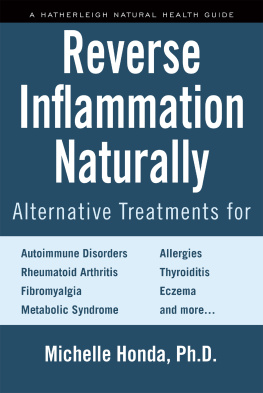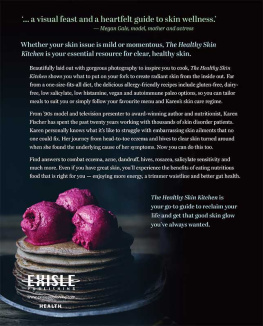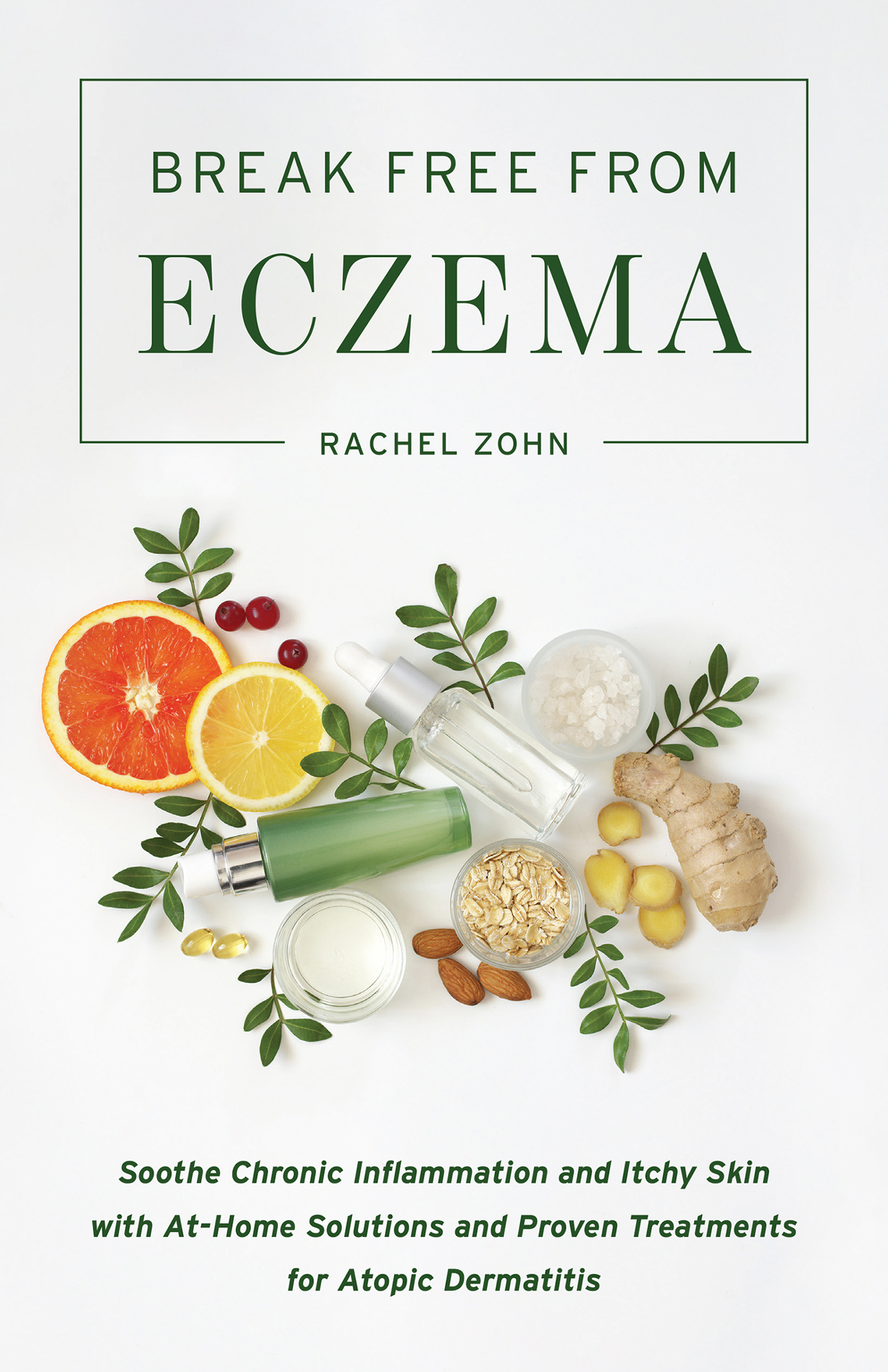Contents
Guide
Text copyright 2020 Rachel Zohn. Design and concept copyright 2020 Ulysses Press and its licensors. All rights reserved. Any unauthorized duplication in whole or in part or dissemination of this edition by any means (including but not limited to photocopying, electronic devices, digital versions, and the internet) will be prosecuted to the fullest extent of the law.
Published in the United States by:
Ulysses Press
P.O. Box 3440
Berkeley, CA 94703
www.ulyssespress.com
ISBN: 978-1-64604-041-4
ISBN: 978-1-64604-113-8 (ebook)
Library of Congress Control Number: 2020931847
Acquisitions editor: Ashten Evans
Managing editor: Claire Chun
Editor: Anne Healey
Proofreader: Renee Rutledge
Front cover design: Hejab Malik
Cover photo: Svetlana Lukienko/shutterstock.com
NOTE TO READERS: This book has been written and published strictly for informational and educational purposes only. It is not intended to serve as medical advice or to be any form of medical treatment. You should always consult your physician before altering or changing any aspect of your medical treatment and/or undertaking a diet regimen, including the guidelines as described in this book. Do not stop or change any prescription medications without the guidance and advice of your physician. Any use of the information in this book is made on the readers good judgment after consulting with his or her physician and is the readers sole responsibility. This book is not intended to diagnose or treat any medical condition and is not a substitute for a physician.
This book is independently authored and published and no sponsorship or endorsement of this book by, and no affiliation with, any trademarked brands or other products mentioned within is claimed or suggested. All trademarks that appear in ingredient lists and elsewhere in this book belong to their respective owners and are used here for informational purposes only. The author and publisher encourage readers to patronize the quality brands mentioned in this book.
INTRODUCTION
MY PERSONAL STORY OF ECZEMA
So what motivated me to write a book about eczema? I am a journalist and writer by trade, and in recent years I have focused on health writing. To begin with, I find that writing about health is a compelling and important topic because its something we all care about and something we can all relate to. The well-being of our minds and bodies are deeply connected to our ability to live our best lives. Eczema is a perfect example of this, because it can have a huge impact on quality of life on many levels. I started writing about eczema several years ago, but I had no clue that I might develop the condition myself until I woke up with it one morning.
Let me just pause here to say up front that I know that my personal experience in dealing with eczema is a drop in the bucket compared with what many people have been through. This book chronicles the stories of many others who have dealt with extreme and chronic cases of eczema, and I am not one of them. But even so, eczema has left me baffled, annoyed, and frustrated. I have spent many hours combing the internet trying to figure out what the heck is wrong with my skin. And this was after I had already spent countless hours researching and writing health stories on this subject. So I can very much empathize with the plight of others who are trying to figure out this very confusing skin condition. What follows are a couple of lessons I learned the hard way.
Eczema Can Come Back at Any Time
Like so many millions of people out there, I had eczema as a child. Im told I had a horrible case of cradle cap as a baby. In elementary school, I had a very mild case of eczema on my hands, which basically amounted to some tiny, itchy bumps on my fingers and along my knuckles. Eventually, it went away. I honestly didnt think much about eczema for more than 35 years. Then, one morning it came roaring back with a vengeance. For unknown reasonsI hadnt used anything new on my skin or come into contact with anything irritating that I was aware ofthe area around my eyelids and the area around my eyes had suddenly turned very dry and terribly itchy. The dry skin was inflamed and puffy, and over the course of a few hours, I noticed that the puffiness had created a puckered effect that created deep creases around my eyes (noticeably worse than my normal wrinkles!). The inflamed skin quickly developed into a red rash of tiny bumps.
Eczema Is Incredibly Frustrating to Deal With
These symptoms led to my first trip to urgent care, where I received my first steroid shot. I was put on a pack of oral steroids and told to stop using any products that might have irritated my skin (I promptly threw out what I had been using). I was relieved when my symptoms quickly diminished and my face returned to normal within a day. For the next several weeks I tried to be extra careful about anything I put on my skin, but I assumed it was a one-off issue and everything would return to normal.
Except three weeks later, the same thing happened again. The same horribly itchy rash and irritated, puffy eyelids and skin returned. I ended up at a different urgent care facility and had a second steroid shot, this time coupled with a prescription for antihistamines. I was told to take the antihistamines up to three times a day for the next three weeks. I was only using a few products at this time, but I tried to cut out anything that seemed to be irritating my skin. I was even more diligent and careful about what I put on my skin.
A few weeks later when the symptoms came back yet again, I felt ready to cry. I was finally able to get an appointment to see my regular doctor, and by the time I saw him, I was feeling pretty frustrated with both my skin and the lack of information on why this was happening or what I could do to stop it. My doctor said he believed I may be experiencing a rebound flare from having had two steroid injections and an oral steroid prescribed within a short period of time. He prescribed tacrolimus ointment, a nonsteroidal ointment that works on the immune system, and directly on the skin cells, to suppress your skins hyperreactive defense mechanism to irritants. It belongs to a class of drugs known as topical calcineurin inhibitors, which well look at more closely in subsequent chapters. Im lucky that my insurance covered this ointment, because its expensive.
Since then, I continue to have occasional flare-ups, and Im usually not sure what, exactly, caused the problem. Thankfully, using a small amount of tacrolimus ointment has helped me manage these flare-ups. But to top it off, Ive started to experience seborrheic dermatitis, which I have never had as an adult. And I also started to have eczema flare-ups on my hands from constant handwashing. My new beauty routine now revolves around medicated shampoos, gentle skin-care products (including some natural-base products), and thick moisturizers for my hands.
This whole experience has been eye-opening for me in terms of how difficult it is to navigate eczema treatment options to find those that will alleviate my eczema while also, hopefully, avoiding other unintended consequences. Im still trying to figure this out for myself, just as you are, and Im trying different things to see what works for me and what doesnt.
We Dont Often Know Our Family History













